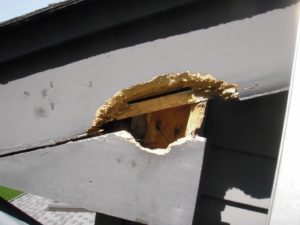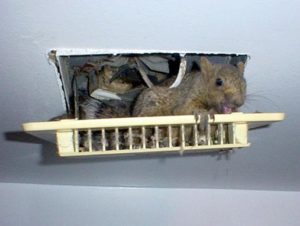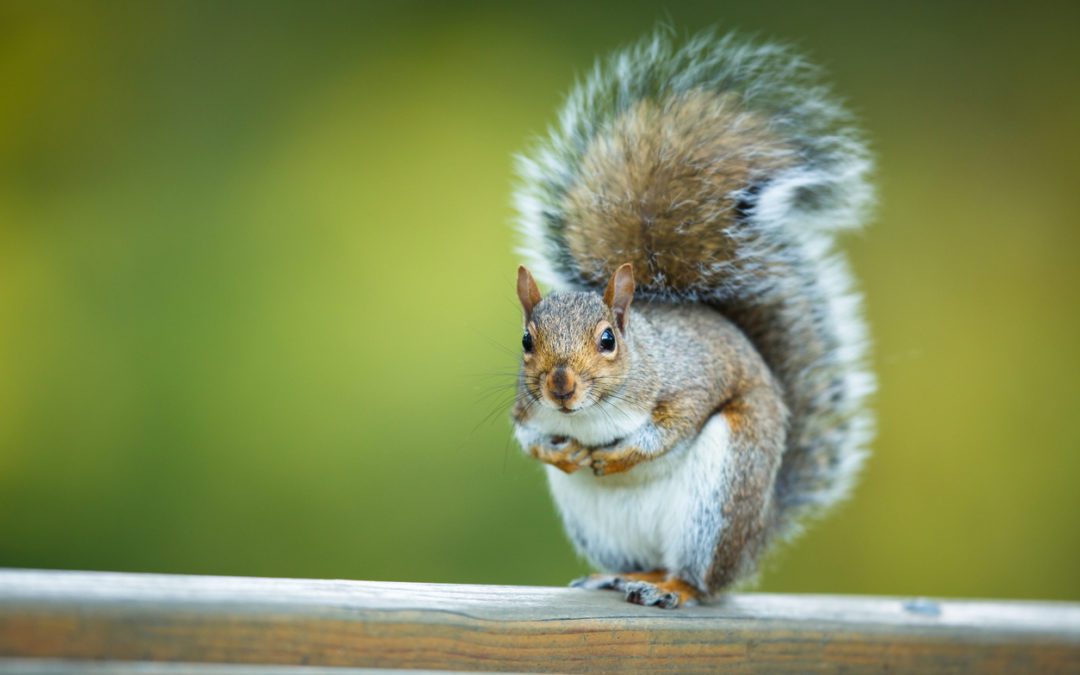Now that fall is upon us and winter is just a couple of months away, squirrels are looking for a place to weather the cold. From a squirrel’s perspective, an attic space is the ideal place to build a home, offering warmth, shelter, and safety from predators. If you’re noticing strange sounds or activity in and around your house, you may very well be in need of a squirrel removal specialist. Asking yourself these questions can help you determine the best solution.
How Do I Know If I Need Help With Squirrel Removal?
What do I hear?
The easiest and most common means of discovering squirrels in your attic is to listen for unusual noises coming from the ceiling. Squirrels are small and hop or run to travel from place to place. If you hear light, scurrying sounds that move quickly from one location to another, this is a good indication you’re dealing with squirrels. Also, like all rodents, squirrels have teeth that are always growing. Because of this, they will habitually gnaw on any available material – especially wood, cardboard, and exposed wires – to shave their teeth down. Listen for these distinct chewing noises.
What do I see?
All homes have some variety of roof venting whether it be mushroom vents, ridge vents, gable vents, or an attic fan. Even when these vents have insect screening over their openings, squirrels are very small and have little difficulty tearing away the screen to squeeze through them. If the squirrels are using one of these vents as an access point, you may see ripped insect mesh or gnawing on the slats of a gable, but more often than not, these signs are tricky to spot from the ground. Squirrels may also chew through fascia, trim, or the roof itself to make any entryway into the attic. They are likely to target areas that are easier to gnaw, like corners or spots where the wood has been weakened or damaged. Look for holes that are circular and about the size of a baseball or softball. If you’re able to access your attic from the inside, you may see that the insulation has been dug out, torn, or compressed in certain areas. You may also notice droppings about the size of a grain of rice scattered throughout the insulation.
What time of day is it?
Squirrels are diurnal animals, meaning that they are most active during the daytime. If you hear activity in your attic during daylight hours, it is most likely to be squirrels.
What time of year is it?
While squirrels are found in attics year round, their peak time of activity is during the spring and fall when they’re looking for a safe place to give birth and a warm place to spend the winter. Attic temperatures are frequently unbearably hot during the summer, and squirrels are more likely to avoid them during these months.

Sharing is caring! If you’ve learned something from what you’ve read, please click one of the icons below to share this post on social media.

Images courtesy Benjamin Rosenberger, and Branden Dennison


